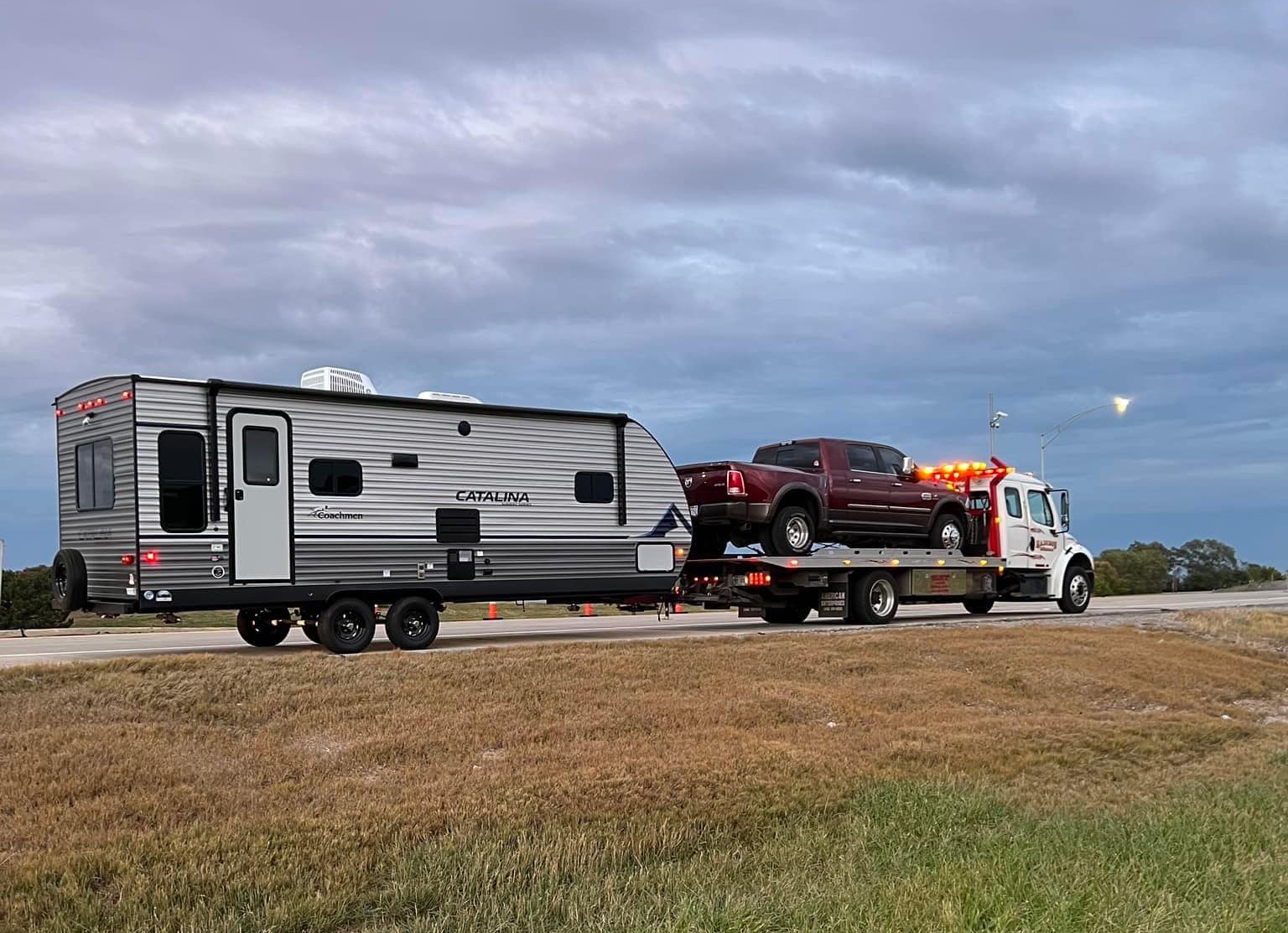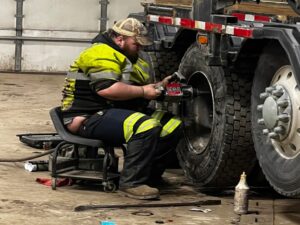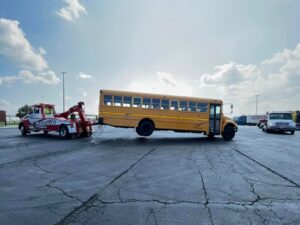From Small Cars to Big Rigs
When you think about towing, you might imagine a standard tow truck picking up a car from the side of the road. But there’s a lot more to it than that. We want to explain the different types of towing because it’s an interesting topic and we want you to know what we, as a towing company, deal with daily. For instance, a compact car broken down in the city requires different towing equipment than a large truck stranded on the highway. Understanding these differences might be helpful, especially if you ever need Fremont heavy-duty towing. Let’s dive into what makes light-duty and heavy-duty towing unique and why it matters for the safety and efficiency of your vehicle’s transport.
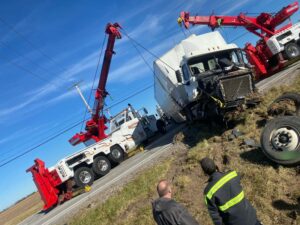
What is Light-Duty Towing?
Light-duty towing is what most people think of when they hear “towing.” It involves the towing of smaller, lighter vehicles like passenger cars, motorcycles, and small trucks. These vehicles generally weigh up to 10,000 pounds. Light-duty tow trucks are equipped with wheel-lift systems or flatbeds and are ideal for short-distance tows and roadside assistance.
Common Scenarios for Light-Duty Towing
- Roadside Assistance: Handling flat tires, dead batteries, and lockouts.
- Minor Accidents: Towing vehicles involved in fender benders.
- Local Tows: Moving cars to nearby mechanics or dealerships.
Light-duty towing is efficient and quick, making it perfect for everyday towing needs.
Equipment Used in Light-Duty Towing
Light-duty tow trucks typically use hydraulic or electric wheel-lift systems to lift one end of the vehicle off the ground. Flatbed tow trucks, which provide a secure platform for the vehicle, are also common in light-duty towing.
Understanding Heavy-Duty Towing
Heavy-duty towing is a whole different ball game. This type of towing is designed for larger, heavier vehicles that exceed 10,000 pounds. We’re talking about buses, large trucks, RVs, and construction equipment. Heavy-duty tow trucks are built to handle the significant weight and size of these vehicles, using powerful winches and reinforced frames.
Scenarios Requiring Heavy-Duty Towing
- Commercial Vehicles: Towing large trucks, semis, and trailers.
- Emergency Recovery: Recovering vehicles involved in serious accidents or off-road situations.
- Long-Distance Tows: Transporting vehicles over long distances for repairs or relocation.
For Fremont heavy-duty towing, it’s essential to choose a service that has the right equipment and expertise.
Specialized Equipment for Heavy-Duty Towing
Heavy-duty tow trucks are equipped with robust winching systems, reinforced frames, and high-capacity engines. These trucks are capable of lifting and pulling massive loads, ensuring the safe transport of heavy vehicles. Additionally, heavy-duty towing often involves the use of air cushions to help lift overturned vehicles and other advanced recovery techniques. For those in need of Fremont heavy-duty towing, these tools are indispensable.
Tips for Ensuring a Smooth Towing Experience
- Provide Clear Information: When you call for a tow, give accurate details about your vehicle and situation.
- Choose Reputable Services: Opt for towing companies with good reviews and reliable services.
- Prepare Your Vehicle: Secure loose items and make sure the vehicle is in neutral.
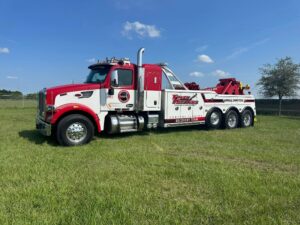
Madison Motor Towing & Heavy Duty Semi Truck Wrecker: Expert Towing Solutions for Heavy-Duty Vehicles
When you need help with Fremont heavy-duty towing, Madison Motor Towing & Heavy Duty Semi Truck Wrecker is here for you. We know heavy-duty towing can be tricky. Our team has the skills and tools to handle any situation. Whether it’s a large truck or heavy machinery, we offer reliable Fremont heavy-duty towing services. Your vehicle’s safety is our top priority. If you need Fremont heavy-duty towing, call us. Madison Motor Towing & Heavy Duty Semi Truck Wrecker is ready to provide you with dependable and professional Fremont heavy-duty towing services every time.

